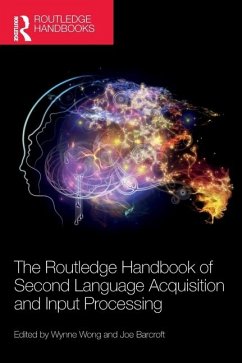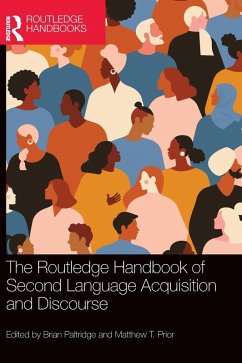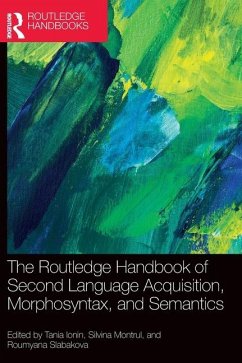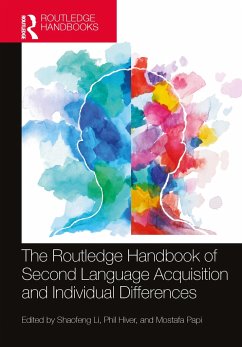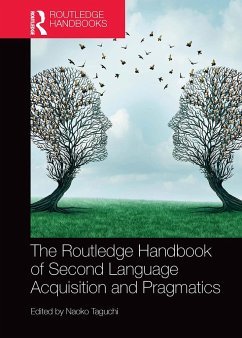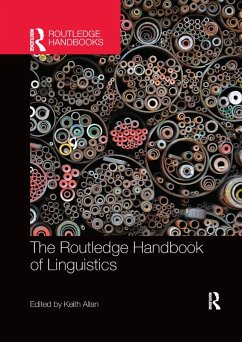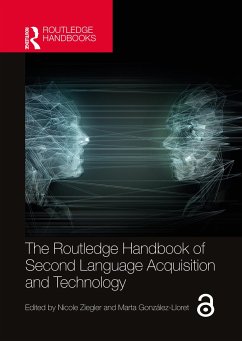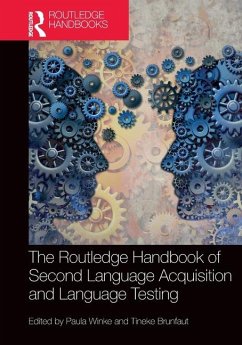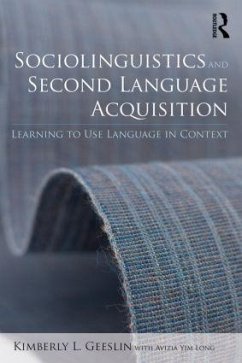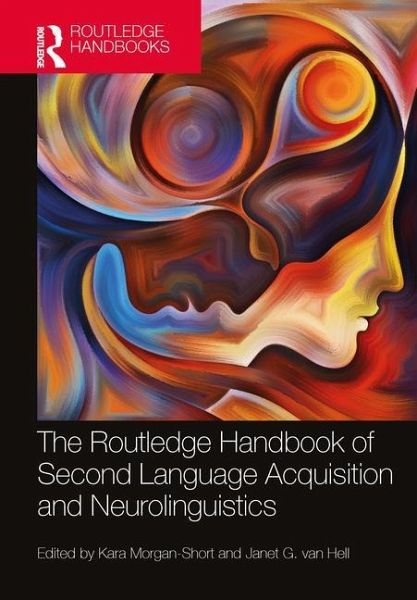
The Routledge Handbook of Second Language Acquisition and Neurolinguistics
Versandkostenfrei!
Versandfertig in 6-10 Tagen
245,99 €
inkl. MwSt.
Weitere Ausgaben:

PAYBACK Punkte
123 °P sammeln!
The Routledge Handbook of Second Language Acquisition and Neurolinguistics provides a comprehensive discussion of a wide range of neurocognitive and neurobiological scientific research about learning second or additional languages. It is a one-of-a-kind centralized resource that brings together research that is typically found in disperse publication venues.Eminent global scholars from various disciplines synthesize and cross-fertilize current and past neural research about second language through systematic, in-depth, and timely chapters that discuss cores issues for understanding the neuroco...
The Routledge Handbook of Second Language Acquisition and Neurolinguistics provides a comprehensive discussion of a wide range of neurocognitive and neurobiological scientific research about learning second or additional languages. It is a one-of-a-kind centralized resource that brings together research that is typically found in disperse publication venues.
Eminent global scholars from various disciplines synthesize and cross-fertilize current and past neural research about second language through systematic, in-depth, and timely chapters that discuss cores issues for understanding the neurocognition of second language learning, representation, and processing. Handbook sections provide overviews of extant and emerging neuroscience methods, syntheses of neurocognitive research on second language syntax, morphosyntax, lexicon, phonology, and pragmatics, and up-to-date descriptions of theoretical approaches of the neural basis of second language learning. The volume provides additional sections that synthesize research on a variety of topics including factors that affect the neurocognition of second language, the neural mechanisms underlying second language learning, individual differences in the neurocognition of second language, as well as research on understudied languages and populations, such as sign language, child second language learners, and individuals with aphasia.
This handbook will be an indispensable resource to scholars and students across a wide range of disciplines, including those interested in second language acquisition, applied linguistics, cognitive science, psychology, neuroscience, and research methodology. It should facilitate transformative connections between ideas and disciplines and lead to informative and productive paths for future research.
Eminent global scholars from various disciplines synthesize and cross-fertilize current and past neural research about second language through systematic, in-depth, and timely chapters that discuss cores issues for understanding the neurocognition of second language learning, representation, and processing. Handbook sections provide overviews of extant and emerging neuroscience methods, syntheses of neurocognitive research on second language syntax, morphosyntax, lexicon, phonology, and pragmatics, and up-to-date descriptions of theoretical approaches of the neural basis of second language learning. The volume provides additional sections that synthesize research on a variety of topics including factors that affect the neurocognition of second language, the neural mechanisms underlying second language learning, individual differences in the neurocognition of second language, as well as research on understudied languages and populations, such as sign language, child second language learners, and individuals with aphasia.
This handbook will be an indispensable resource to scholars and students across a wide range of disciplines, including those interested in second language acquisition, applied linguistics, cognitive science, psychology, neuroscience, and research methodology. It should facilitate transformative connections between ideas and disciplines and lead to informative and productive paths for future research.





